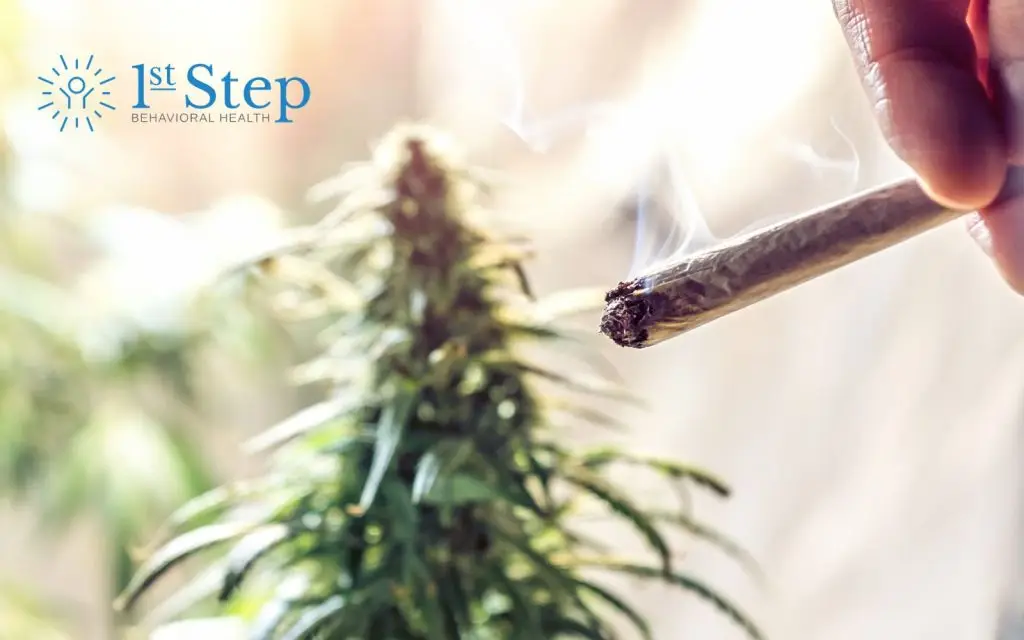People have been using marijuana for thousands of years. In fact, some evidence suggests cannabis use more than 2500 years ago in many areas of the world.
There is some evidence that people used cannabis when the Bible was being written. But what does the Bible say about marijuana use? This article will explore the answer to that question. You will also learn:
- If smoking weed is a sin
- The effects and risks of marijuana use
- How to recognize and treat marijuana addiction
- Where to find comprehensive substance abuse treatment programs
If you or someone you love struggles with marijuana abuse or addiction, you are not alone. Contact the First Step Behavioral Health specialists to learn more about our programs or to schedule an intake appointment.
What Does the Bible Say About Marijuana?
The Bible does not mention smoking marijuana specifically. However, there are several Bible verses related to sexual immorality, impurity, and vices potentially associated with substance use. They include:
- 1 Corinthians 6:12: “All things are lawful for me, but not all things are beneficial. All things are lawful for me, but I will not be dominated by anything.”
- Proverbs 20: “Wine is a mocker, strong drink is raging and whosoever is deceived thereby is not wise.”
- Ephesians 5:18: “And do not get drunk with wine, for that is dissipation, but be filled with the Spirit.”
While there is no mention of marijuana use, there are several verses that warn against drinking that can lead to drunkenness. For example, 1 Corinthians 6:19-20 says, “Do you not know that your bodies are the temples of the Holy Spirit, who is in your, whom you have received from God? You are not your own; you were bought at a price. Therefore, honor God with your bodies.”
The Bible provides guidance about who will inherit the Kingdom of God. Its message is clear about caring for your body and staying sober-minded. The Bible also advises against making choices that may harm it.
So, is smoking weed a sin? Some people may compare abusing cannabis to having a glass of wine. However, modern marijuana has the potential to be potent. Using marijuana for recreational purposes could be considered to be against Biblical guidance in some belief systems.
The Effects and Risks of Cannabis Abuse
Cannabis does not appear in the Bible, but modern addiction experts advise people to be cautious. Many people believe that marijuana is a harmless substance with little risk of addiction, but this is not accurate.
The cannabis plant contains a psychoactive compound called tetrahydrocannabinol (THC). People may smoke or consume cannabis products. Using marijuana causes short-term effects and may have long-term consequences.
Some of the short-term effects of marijuana include:
- Euphoria
- Relaxation
- Sensory changes
- Anxiety
- Increased hunger
- Altered sense of time
- Panic
- Psychosis
Marijuana and THC products are legal in many states. While many more people have legal access to cannabis, these products have serious risks.
Prolonged periods of cannabis use can lead to symptoms of physical dependence and addiction, including:
- Tolerance (needing to use more to get the desired effects)
- Cravings
- Spending a lot of time and energy getting and using more marijuana
- Doing risky things while “high,” like driving, having unsafe sex, or working
- Being unable to stop using cannabis when you choose
- Feeling anxious about having to go without cannabis
- Having new or worsening mental health symptoms
- Having social, legal, or financial trouble related to cannabis use
- Developing psychological addiction (believing you can’t function without it)
- Experiencing withdrawal symptoms if they stop using it
People who develop signs of marijuana addiction may need professional treatment and support to stop using it.
Recognizing Marijuana Abuse
Many people don’t consider marijuana abuse to be a big deal. However, prolonged cannabis abuse can have serious consequences, including symptoms of addiction.
Recognizing the signs of marijuana abuse can help you get treatment quickly. Some signs of marijuana abuse include:
- Having red or bloodshot eyes
- Isolating more often
- Having a new group of friends who use marijuana or other drugs
- Using slang terms for marijuana, like “weed” or “kush.”
- Falling behind at work or school, or neglecting responsibilities at home
- Eating more, especially outside of mealtimes
You may also find paraphernalia associated with cannabis abuse, including rolling papers or pipes.
Research suggests that nearly one in three cannabis users develops a problem with it. People may experience anxiety, cravings, insomnia, and other withdrawal symptoms when they stop using it. This can make it challenging for people to control their cannabis use or detox on their own.
Treating Cannabis Addiction
People who develop symptoms of cannabis addiction may require comprehensive treatment to stop using it. People may also need ongoing support to avoid relapse in the future.
Cannabis abuse treatment plans might include:
- Behavioral therapies
- Mental health treatment
- Medications to ease withdrawal symptoms
- Relapse prevention education
- Individual, family, and group counseling
- Holistic therapies to soothe the mind and body
- Aftercare support programs
Comprehensive treatment can help people put cannabis addiction in the past and work toward a healthier, sober future.
Find Treatment Now
If you or a loved one struggles with cannabis abuse or addiction, you are not alone. Find compassionate treatment and support programs at First Step Behavioral Health. Contact our intake team to learn more or to schedule an intake appointment.
References:
- National Institute of Health (NIH): Marijuana
- The Lancet: Cannabis use and public health: time for a comprehensive harm-to-others framework
Jump to a Section
Call (855) 425-4846
